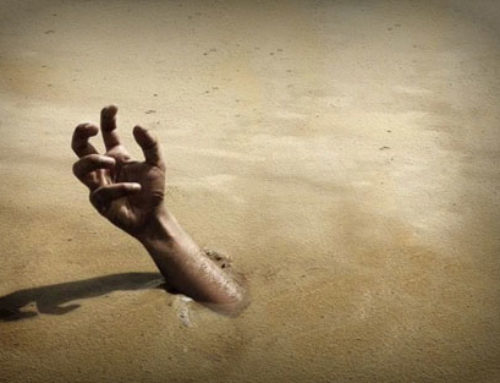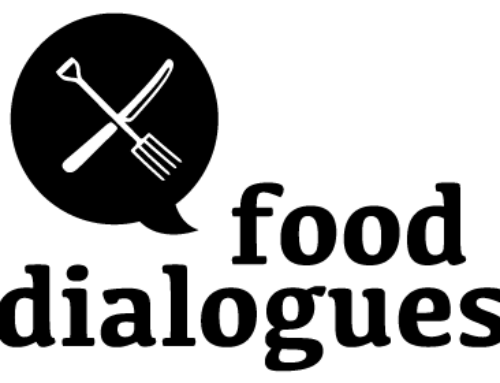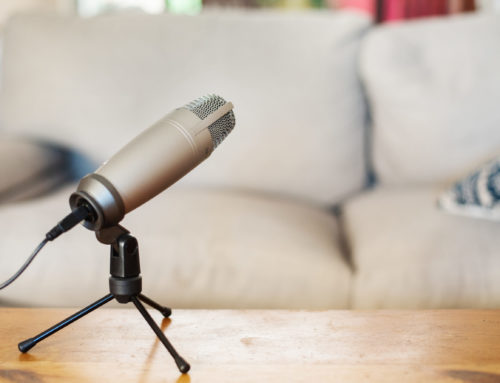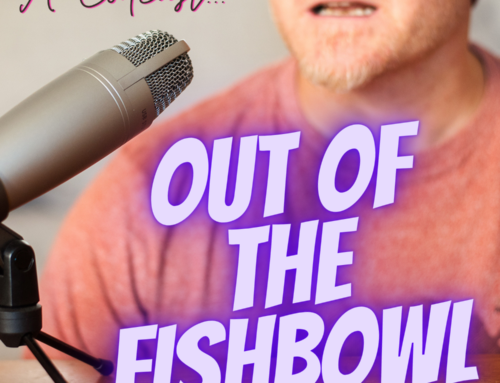This is a not a post about anger. It is not a post about tone policing. This is not even a post about who can say what to who [nope, not saying whom there, it’s 2019, come on!] Although it may contain some of those things.
Rather, it is a post about me, Brett “Fish” Anderson, trying to figure out how we are most likely to arrive at the best results and see change.
In the one corner, do absolutely nothing. Just live ‘your best life’ and ignore all the issues and the context you are living in and just basically try to make money and have fun and buy the things and be completely oblivious to what is going on around you. i know people like this, and it is heart-breaking for me.
In another corner, you have those people who, much like the dogs analogy that Ozzy Man uses in this too-close-for-comfort video, titled ‘Using the Internet in the 21st Century’ just seem to go off at each other mercilessly, with little grace and compassion evident, and a whole lot of anger and viciousness.
i guess i imagine the schweet spot to be somewhere on the continuum between these two places where there a a lot of learning happening, a whole lot of engaging, where people are not allowed to simply get away with their racist/ignorant thoughts and comments, but where people are being invited to keep moving on with their journey, wherever they may find themselves.
There is room for Anger
This should not even be a question. Of course there is room for anger. There has to be. In a country as unequal and messed up as our beloved country is, where we top the statistics on all sorts of the wrong things [murder, rape…] we need to be angry. If you’re not angry in some way, then you surely have to be living in some kind of bubble. If there is nothing about your present circumstances that demand Anger as the most natural response, then surely you know someone else who feels that way and rightly so.
If you’re black or brown you should be angry. If you’re a parent you should be angry. If you are a woman you should be angry. If you are a child you should be angry. If you are being paid badly for looking after someone else’s children or cleaning their house, you should be angry. If you’re living in an area with no or little service delivery, you should be angry. If you have lost someone[s] due to violence, you should be angry. If you are a person who relies on public transport to travel, you should be angry. If you’re a member of the DA you should be angry. But if you’re a member of the ANC you should probably also be angry. This list could really go on and on and on and you will find yourself in some place or places on there.
How should you play out your Anger?
“You can protest about fees at University, but you can’t burn paintings.”Is pretty much what one particular part of the narrative was about during #FeesMustFall. So the idea of being angry to a point and then [in someone’s mind or words or actions] the anger becomes too much.
But what if you protest and protest and protest and protest and for years nothing changes? Then are you allowed to burn a painting? Are you allowed to deface a statue? Burn a car?
So those are questions for the offline, but they play into the online space as well and that is the context i am trying to figure out here.
How should we Engage Online?
In the last couple of months, there has been a major increase of South Africans engaging online in terms of issues relating to a positive South Africa.
The one approach has been the #ImStaying group which landed and arrived with such momentum that within a few weeks over a million South Africans were engaging with each other on areas of Positivity. Right from the outset, their message was clear – this is a space for positivity – we discourage speaking about race, religion and politics and anything that we deem as not being positive will be deleted, silenced or removed. As will anyone who tries to post such things.
As a result of a lot of discomfort within the #ImStaying group for a number of reasons [the name, the overall feeling of whiteness, the predominantly white leadership policing the group, the types of posts with pictures of domestic workers and white saviour moments seeming to dominate] a number of other groups formed and started looking at ways of being positive but also doing the hard work needed to bring about change. With ‘Conversations for a Just South Africa’ and ‘#ImStayingToo But I want to tackle the real issues facing our country’ as two examples of them. Plus keeping in mind that there were already a number of groups, such as ‘This Dialogue Thing’ that were doing all of this for years, and way before @ImStaying was even thought about.
Then you obviously get a lot of people who are not part of any of those groups and who choose to engage on their personal pages or not at all. And in a variety of ways.
[i have been an admin for ‘Conversations for a Just South Africa’ since shortly after it started so have a bit of an inside view of how that all works – was part of #ImStaying before i was ejected for reasons beyond my knowledge and am a member of ‘#ImStayingToo…’ but don’t spend a lot of time there. i have been a member of ‘This Dialogue Thing’ for a number of years and learned a whole lot through many conversations and engagements over there]
Call the Tone Police
As i start commenting on Tone Police, let me say up front that this is an area i don’t fully understand. i think i get the heart of it which seems to be ‘How can you [someone else] tell me how angry i can or cannot be given my history and experience and present circumstances?’
This is an area we have come up against when trying to facilitate conversations in ‘Conversations’. Some people think we are too heavy-handed and some people think we are not heavy-handed enough. Some people would like to see absolutely no moderation and just let people say and do what they want and others report posts where ideas were shares they didn’t like as opposed to something that deserves being reported.
How do you create a group that invites difficult, awkward, complicated, painful and tough conversations and then come up with some guidelines so that people will [A] Engage at all and [B] Not engage at the expense of others engaging?
But let me step away from the group and simply comment as far as this concerns my blog-posting and interactions with people online.
A Third Way?
Let me start by saying i do not get it right every time. [i see those heads nodding!]
At the same time, i believe that i get it right a lot better than i did two years ago, and a whole lot better than five years ago. i am a work in progress in this field. Because i am on a journey. It’s very definitely not like i have arrived and am just helping other people to arrive. i am unlearning and dismantling and being alerted to blind spots and trying to listen and be curious and read and educate myself and see and understand.
i don’t think the answer is never being angry or strong in your point-making, even if that sometimes makes people sad or angry in response or feel hurt. However, for me it becomes a problem when un-tone-policed anger [which seems to be what many people are calling for] results in people disengaging completely and feeling justified in doing so. Again, there might be times when this is okay and letting a person express their anger the way they choose to might trump somebody not being able to receive that anger in that way. But too many times i have seen people starting to engage in difficult race conversations, who get smashed by quite violent language from someone online, and walk away saddened and not feel safe enough to engage further, maybe ever again.
In fact, i have seen a kind of good cop/bad cop scenario play out so many times with my friend Jacqui Tooke [or others like Vezi Mncwango, Thesna Aston, Linda Martindale and more] where i come in with a stronger approach and get someone’s back up, and then Jacqui will come in a lot more calmly and walk alongside the person and identify with the space they are coming from and often walk them to a different understanding than i could. We have spoken about how the ground often needs to be shaken up before the good planting can happen. Does Jacqui have a better approach than me? [i sometimes think so] Experience tells me that both of our approaches work well in different ways.
Drawing a Conclusion
Urgh, too many words already. Let me try wrap my thoughts on this up.
-
People really should be angry. No question there. We have a lot to be angry about.
-
How we express our anger feels important. If we are constantly expressing our anger in a way that sees people disengage and refuse to be part of the conversations then that might feel right on one level, but ineffective on another.
-
The online activism space seems to often be a place of amnesia. For those of us who moved largely from a place of not being conscientised to a place where we are actively trying to do the work, we HAVE to remember that it was a journey for us, just as it is a journey for others. We can’t insist that others are at the place we are if we haven’t given them the time and resources to get there.
-
It is too late to just be positive without committing to action. i don’t think the #ImStaying group is completely destructive in every possible way but i do believe if being part of that group is the extent of what you’re doing, then you are definitely missing out. It’s been 25 years since apartheid officially ended and we cannot now just do feel-good exercises without accompanying action.
-
As white people we need to be aware of how painful and destructive and full of attrocity our recent and distant past have been [and the present for the majority of black and brown people in South Africa] and we HAVE to do better at pushing into painful, awkward, uncomfortable conversations. We have to stick around when it feels unfriendly and when we are made to feel bad. We can’t insist that the conversations happen in a way that makes us feel catered for, because the lived experiences of so many people trump that in so many ways.
-
My own personal hope when it comes to online arguments is for people to ‘Attack the Argument, not the Person!’ and this is perhaps where i may feel differently from some others, but also in a world where there are unrepentant racists and trolls and immature people there are moments [usually fairly far on in the conversation] where i lose my patience and refer them to the poster my sister-in-law gave me for my office which proudly states, ‘Don’t be a dick!’ Because sometimes you just need to stop being a dick! [This includes me for sure!]
As a last point, i do think we need to remember that the online space as a place of engagement, is still a relatively young space. So a lot of the time most of us are just trying to make this stuff up as best we can as we go along. We will make mistakes. We do, and hopefully we learn from them. For me, as a follower of Jesus, i seek to live a life similar to the one He lived. He did get angry and He did even get quite insulting. But always in the direction of those who should have known better and yet lived as if they didn’t. Those who were clamouring for power or abusing the marginalised.
Jesus never went off at those who society had pushed to the side. He only ever had Love and a Welcome and healing and an ear for them. If and when i get it wrong, i try to do it in the direction of those same people… and in South Africa that means black and brown people, and the poor and marginalised, and women and children…







I think all this activism is a tad misplaced. Do you know that some poeple in town pay 45 percent income tax? Plus rates plus vat plus licenses and levies. Total tax is about 60 percent or 65 percent. This means that two thirds of his work is to pay tax. By any reasonable means of analysis, this is slavery! I know you disagree as everything must be because of apartheid which happened about 30 years ago now. But that’s not true. It’s extortion and theft from people who work hard. A qualified person will most of the time earn more than a domestic. You need to check your entitlement to other people’s product of their labor. You not entitled to it. Others are not entitled to it. So stop promoting communism. If you really were a communist you’d spend that airline ticket money on the poor, but you refuse to. This is hypocracy and I’m calling you out on it. You want your money like everyone else. So don’t call for communism if you not willing to also part with your own money.
As someone who has no real idea how i spend my money you do seem to make a lot of assumptions. But you keep calling life today slavery and refusing to acknowledge that slaves were physically beaten, raped and killed while being treated as someone’s property. So every single time you say it you are being deeply offensive and showing that you literally don’t seem to have much idea what you are talking about.